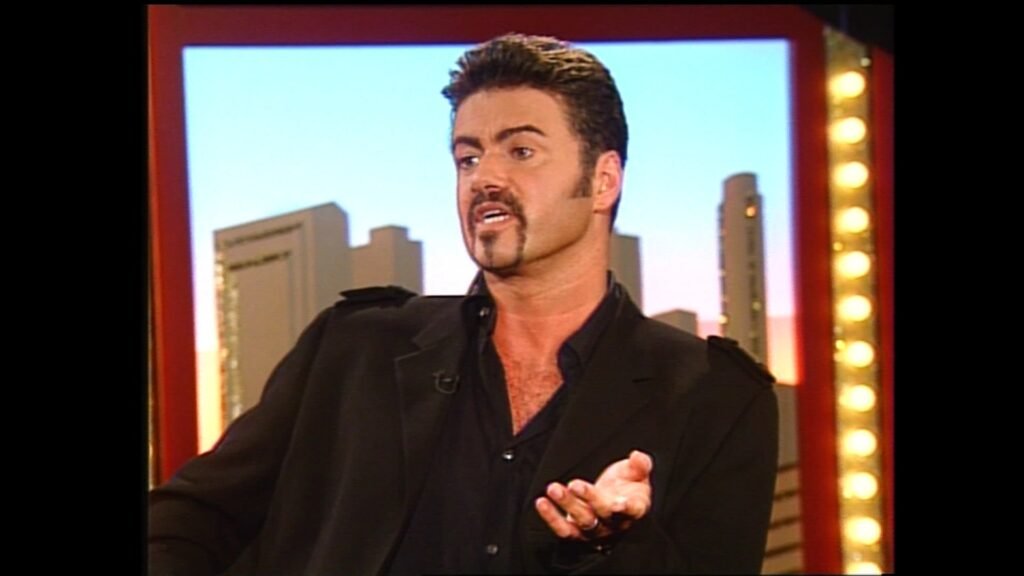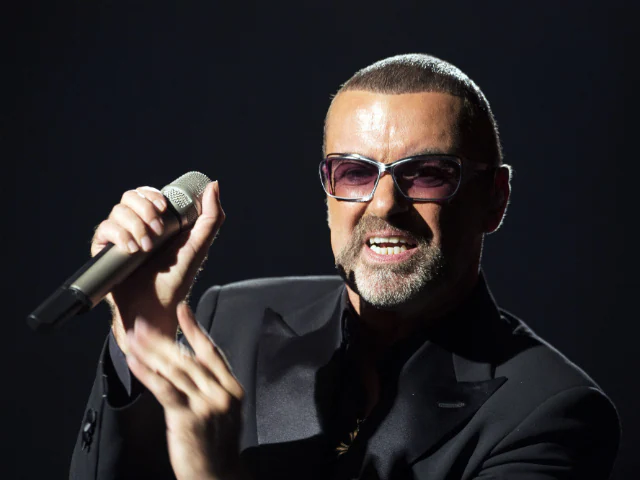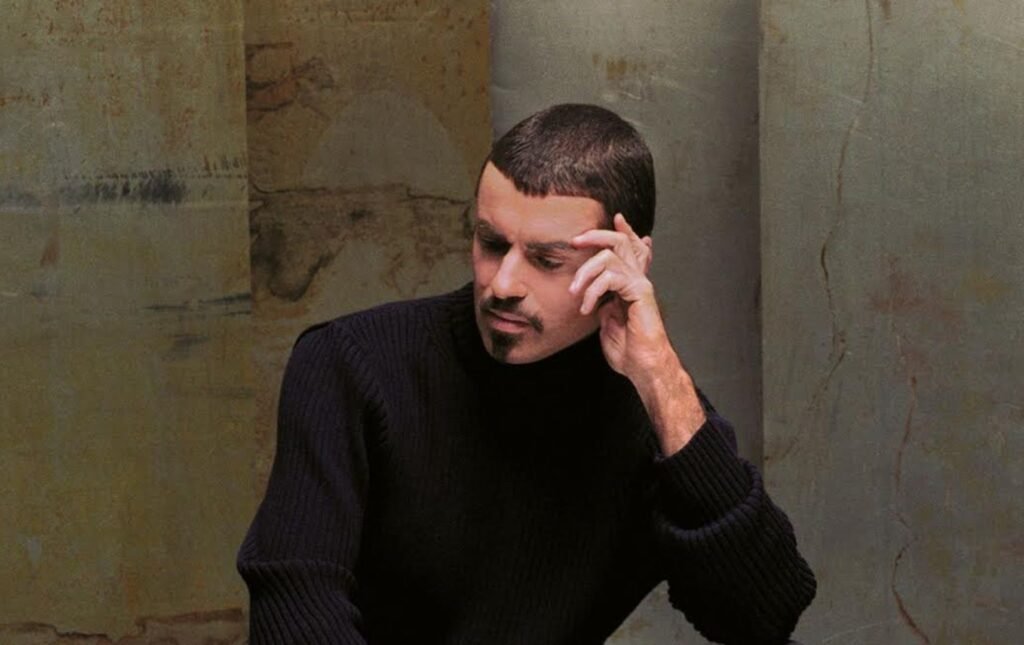George Michael, born Georgios Kyriacos Panayiotou, emerged as one of the most influential figures in pop music. Rising to fame as half of the iconic duo Wham! in the early 1980s, Michael quickly captivated audiences with hits like “Wake Me Up Before You Go-Go” and “Last Christmas.” Transitioning to a solo career, he cemented his status as a pop legend with timeless tracks such as “Careless Whisper,” “Faith,” and “Freedom! ’90.” His soulful voice, charismatic stage presence, and knack for songwriting earned him numerous awards and a devoted global fanbase.
However, Michael’s illustrious career was not without its tumultuous moments. In 1998, his arrest in a Beverly Hills public restroom for “engaging in a lewd act” thrust him into the spotlight for reasons beyond his musical talents. This incident marked a pivotal turning point in his life and career, as it led to his public acknowledgment of his homosexuality. Rather than retreating from the scandal, Michael chose to confront it head-on, using the opportunity to openly discuss his sexuality and advocate for LGBTQ+ rights.
Explore how George Michael’s decision to live openly and authentically after his 1998 arrest significantly impacted LGBTQ+ representation in the music industry. By embracing his true self and leveraging his platform, Michael not only broke down barriers for LGBTQ+ artists but also inspired a broader cultural shift towards acceptance and inclusivity. His journey serves as a testament to the power of authenticity and the enduring influence of artists who champion visibility and equality.
Early Career and Public Image

George Michael’s musical journey began in the early 1980s with the formation of Wham!, a duo he created with his school friend Andrew Ridgeley. Wham! quickly skyrocketed to fame, becoming a quintessential part of the pop music scene with their infectious energy, catchy melodies, and charismatic performances. Their debut album, “Fantastic,” released in 1983, set the stage for their success, but it was their second album, “Make It Big,” that solidified their global stardom. Hits like “Wake Me Up Before You Go-Go,” “Everything She Wants,” and the perennial holiday favorite “Last Christmas” turned Wham! into international superstars.
Despite the duo’s overwhelming success, George Michael harbored ambitions that extended beyond the playful image and bubblegum pop sound of Wham!. In 1986, he made the bold decision to embark on a solo career, a move that would define his legacy. His debut solo album, “Faith” (1987), was a commercial and critical triumph. The album showcased Michael’s versatility as an artist, blending pop, rock, and soul influences. Singles such as “Faith,” “Father Figure,” and “One More Try” topped charts worldwide and earned him numerous accolades, including a Grammy Award for Album of the Year.
Public Image
During the 1980s and early 1990s, George Michael’s public image was that of a confident, stylish, and enigmatic performer. His music videos, especially the iconic “Faith” video, featuring his leather jacket, guitar, and trademark aviator sunglasses, became emblematic of his persona. He was seen as a sex symbol and a heartthrob, with an air of mystery that only heightened his appeal. However, this carefully curated image also masked a private struggle.
The media, always eager for a glimpse into the personal lives of celebrities, frequently speculated about Michael’s sexuality. In an era when being openly gay could jeopardize one’s career, Michael maintained a level of discretion regarding his private life. The constant scrutiny and pressure from tabloids created an atmosphere of tension and speculation. Despite this, he continued to produce music that resonated deeply with audiences, balancing his public persona with his private reality.
As his fame grew, so did the media’s interest in his personal affairs. Whispers about his sexuality became louder, but Michael remained tight-lipped, focusing instead on his artistry and philanthropic efforts. This period of his career was marked by a delicate dance between maintaining his privacy and meeting the public’s expectations, setting the stage for the seismic shift that would occur following the events of 1998.
The 1998 Arrest: A Turning Point

In April 1998, George Michael’s life took an unexpected and highly publicized turn when he was arrested in a public restroom in Beverly Hills for “engaging in a lewd act.” This incident occurred in Will Rogers Memorial Park, where an undercover police officer witnessed the act and arrested Michael on the spot. The news of the arrest quickly made headlines around the world, thrusting the singer into the center of a media storm.
The reaction to the arrest was immediate and intense. Tabloids and news outlets seized the story, with headlines sensationalizing the details of the incident. The media frenzy was fueled by a mix of scandal and curiosity, as rumors about Michael’s sexuality had circulated for years without confirmation. This public outing was both shocking and titillating for many, leading to widespread speculation and scrutiny.
George Michael’s Strength
In the face of this overwhelming public and media pressure, George Michael made a courageous decision that would define his legacy. Rather than retreating from the spotlight, he chose to confront the situation head-on. Just days after his arrest, Michael appeared on CNN in an interview with Jim Moret. In this candid conversation, he openly discussed the incident, acknowledging his homosexuality and expressing his regret over the circumstances of his outing.
Michael’s decision to come out publicly was a significant and bold move, especially considering the societal attitudes towards LGBTQ+ individuals at the time. He admitted to his mistake but also criticized the entrapment tactics used by the police, framing the incident as a catalyst for his long-overdue openness about his sexuality. This interview marked a pivotal moment in his career and personal life, transforming what could have been a devastating scandal into an opportunity for advocacy and authenticity.
In the years that followed, Michael used his platform to become a vocal advocate for LGBTQ+ rights. His openness about his sexuality challenged stereotypes and inspired many within the LGBTQ+ community and beyond. By refusing to be shamed or silenced, George Michael not only reclaimed his narrative but also contributed to a broader cultural shift towards acceptance and visibility for LGBTQ+ individuals.
Breaking Barriers: Openness and Advocacy

Following the watershed moment of his 1998 arrest and subsequent coming out, George Michael became an outspoken advocate for LGBTQ+ rights and used his public platform to promote acceptance and equality. His journey from private discretion to public openness marked a significant shift in his personal and professional life, one that would resonate deeply with fans and the broader LGBTQ+ community.
In numerous interviews and public statements post-1998, Michael spoke candidly about his sexuality and the challenges he faced. He transformed what could have been a career-destroying scandal into a powerful statement of pride and resilience. In interviews with outlets like The Advocate and BBC, he discussed his experiences and the societal pressures that kept him closeted for so long. His openness helped humanize the struggles of LGBTQ+ individuals, fostering greater empathy and understanding among the public.
One of the most significant impacts of Michael’s openness was its influence on public perceptions of LGBTQ+ individuals in the entertainment industry. By living authentically and refusing to hide his true self, Michael broke down barriers that had long kept LGBTQ+ artists in the shadows. His bravery in addressing his sexuality publicly inspired countless others to embrace their identities without fear of judgment or retribution. This shift was particularly influential during a time when LGBTQ+ representation in media was still limited and often fraught with stereotypes.
LGBTQ+ Activism
Michael’s influence extended beyond his music and public statements. He became actively involved in LGBTQ+ activism and advocacy, using his celebrity status to support various causes. He participated in charity events, fundraisers, and campaigns aimed at advancing LGBTQ+ rights and combating HIV/AIDS, a cause particularly close to his heart given the impact of the epidemic on the LGBTQ+ community. Michael’s contributions included significant financial support and personal involvement, underscoring his commitment to making a difference.
One notable example of his advocacy was his support for the Terrence Higgins Trust, a leading HIV and sexual health charity in the UK. Michael not only donated money but also performed at benefit concerts and engaged in public awareness campaigns. His efforts helped to destigmatize HIV/AIDS and promote sexual health education, crucial issues that disproportionately affected the LGBTQ+ community.
Michael’s advocacy work also included speaking out against homophobia and discrimination. He used his music to convey messages of love, acceptance, and resilience. Songs like “Outside,” which humorously addressed his 1998 arrest, and “Freeek!” pushed boundaries and challenged societal norms, turning personal experiences into broader statements on freedom and equality.
Impact on LGBTQ+ Representation in Music

George Michael’s decision to come out publicly in 1998 had profound and far-reaching effects on the music industry, influencing both its immediate and long-term landscape. His openness not only reshaped his own career but also paved the way for greater acceptance and visibility of LGBTQ+ individuals within the music scene.
Immediate Effects on the Music Industry
In the immediate aftermath of Michael’s coming out, there was a noticeable shift in the music industry’s approach to LGBTQ+ representation. Michael’s honesty and refusal to retreat from the spotlight challenged the status quo, encouraging other artists to consider their own visibility. Record labels, which had previously been cautious about promoting openly LGBTQ+ artists, began to recognize the importance and value of authenticity. Michael’s continued success despite his publicized sexuality demonstrated that an artist’s talent and music could transcend prejudice and bias.
Long-Term Influence on LGBTQ+ Artists
Michael’s courage and visibility provided a powerful role model for other LGBTQ+ artists. He demonstrated that it was possible to maintain a successful career while being open about one’s identity, inspiring a new generation of musicians to embrace their true selves. Artists such as Elton John and Freddie Mercury, who had faced similar struggles, found in Michael’s public acknowledgment a renewed sense of solidarity and support.
In the years following Michael’s coming out, numerous artists have cited him as an inspiration. For example, Sam Smith, a prominent LGBTQ+ artist, has often spoken about the influence George Michael had on their career and personal life. Smith, who came out as non-binary in 2019, has acknowledged how Michael’s bravery in the face of public scrutiny provided a template for navigating their own journey with authenticity and confidence.
Broader Acceptance in the Music Scene
Michael’s impact extended beyond individual artists to influence broader cultural attitudes within the music industry. His openness contributed to a gradual but significant increase in the acceptance and celebration of LGBTQ+ identities in mainstream music. This shift is evident in the diverse array of LGBTQ+ artists who have since gained prominence, including Frank Ocean, Hayley Kiyoko, and Troye Sivan. These artists, among others, have not only drawn inspiration from Michael’s legacy but have also expanded on it, bringing a wide range of LGBTQ+ experiences and stories to the forefront of popular music.
Challenges and Backlash

Despite his significant contributions to music and LGBTQ+ representation, George Michael faced numerous challenges and backlash from various fronts. His journey to living openly as a gay man was fraught with obstacles, including media scrutiny, industry biases, and public reaction. However, Michael’s resilience and determination enabled him to navigate these challenges while maintaining his career and continuing his advocacy.
Media Scrutiny and Intrusion
The media’s relentless scrutiny of Michael’s private life intensified following his 1998 arrest. Tabloid headlines sensationalized his sexuality and personal struggles, often overshadowing his musical achievements. Stories about his relationships and personal life became fodder for gossip columns, contributing to a climate of constant surveillance and speculation. This invasive coverage took a toll on Michael, who had always valued his privacy.
Michael responded to this intrusion by taking control of his narrative. He used interviews and public statements to address rumors directly, often with a candidness and humor that disarmed his critics. For instance, his music video for “Outside,” which humorously referenced his arrest, showcased his ability to turn scandal into a statement, reclaiming his story from the media’s grasp.
Industry Bias and Challenges
The music industry, traditionally conservative and often resistant to change, presented its own set of challenges for an openly gay artist in the late 1990s and early 2000s. Despite his established fame, Michael faced subtle and overt biases that affected his career. These included fewer promotional opportunities, reluctance from certain radio stations to play his music, and a general hesitancy to associate with an artist whose sexuality was so publicly scrutinized.
To combat these industry biases, Michael leaned into his artistry and the support of his loyal fanbase. He continued to produce music that resonated deeply with his audience, proving that his talent transcended any attempts to marginalize him. Albums like “Patience” (2004) and his participation in projects like the “Songs from the Last Century” (1999) showcased his enduring relevance and creativity.
Public Reaction and Societal Attitudes
Public reaction to Michael’s openness was mixed. While many fans and members of the LGBTQ+ community celebrated his bravery, he also encountered significant backlash from conservative sectors of society. Negative public attitudes towards LGBTQ+ individuals were still prevalent, and Michael’s high-profile status made him a target for discrimination and homophobia.
Michael navigated these societal attitudes by becoming more vocal in his activism. He leveraged his celebrity status to advocate for LGBTQ+ rights and HIV/AIDS awareness, often speaking out against injustices and supporting related causes. His philanthropic efforts, including significant donations to charities and participation in benefit concerts, underscored his commitment to making a positive impact despite the negativity he faced.
Maintaining Career and Activism
Throughout these challenges, George Michael remained steadfast in his commitment to his career and activism. His ability to channel adversity into creative expression was evident in his music and public appearances. Songs like “Freeek!” and “Shoot the Dog” tackled social and political issues head-on, demonstrating his willingness to address controversial topics through his art.
Michael’s resilience was also evident in his live performances. Tours like the “25 Live” tour, which spanned from 2006 to 2008, were not just musical events but statements of his enduring talent and relevance. These performances were met with critical and commercial success, reaffirming his status as a pop icon.
In addition to his music, Michael’s public persona evolved to embody a blend of vulnerability and strength. He openly discussed his struggles with mental health and addiction, further humanizing his image and connecting with fans on a deeper level. By sharing his personal battles, he broke down stigmas and encouraged others to seek help and support.
Final Thoughts

George Michael’s journey from global pop icon to LGBTQ+ advocate and trailblazer is a testament to the power of authenticity and resilience. Throughout his illustrious career, he captivated audiences with his exceptional talent and fearless approach to music, creating timeless hits that remain influential to this day. His public coming out in 1998, following a highly publicized arrest, marked a pivotal moment not only in his life but also in the broader context of LGBTQ+ representation in the music industry.
Michael’s decision to live openly and authentically challenged societal norms and broke down barriers for LGBTQ+ artists. His candid public statements and interviews post-1998 helped humanize the struggles faced by LGBTQ+ individuals, fostering greater empathy and acceptance. By using his platform to advocate for LGBTQ+ rights and support causes like HIV/AIDS awareness, Michael demonstrated that an artist’s influence extends beyond their music.
Despite facing intense media scrutiny, industry biases, and public backlash, Michael’s resilience enabled him to maintain a successful career while championing LGBTQ+ visibility. His legacy is evident in the careers of artists like Sam Smith, Troye Sivan, and Hayley Kiyoko, who draw inspiration from Michael’s bravery and authenticity. His impact on the music industry and broader cultural attitudes towards LGBTQ+ individuals continues to resonate, highlighting the enduring power of truth and courage.
